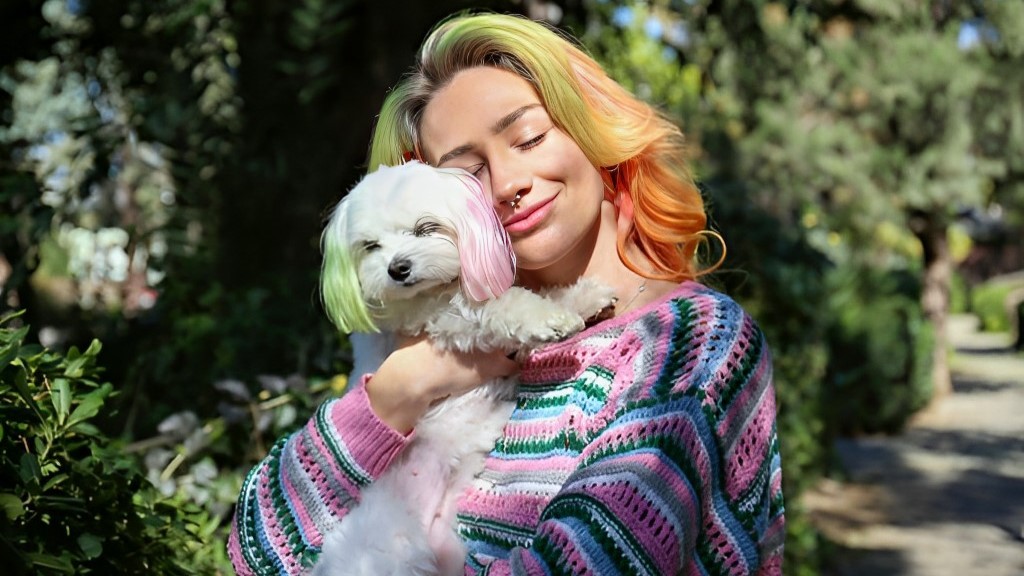When it comes to choosing a pet, there are various factors to consider, and one important aspect is allergies. For individuals who are prone to allergies, hypoallergenic pets can be a wonderful option. These pets are known to produce fewer allergens, making them more compatible with sensitive individuals. In this comprehensive guide, we’ll delve into the world of hypoallergenic pets, discussing their characteristics, benefits, and the best options to consider for a comfortable and allergy-free home.
Contents
- 1 Understanding Hypoallergenic Pets
- 2 Characteristics of Hypoallergenic Pets
- 3 Top Picks for the Best Hypoallergenic Pets
- 4 Tips for Living with Best Hypoallergenic Pets
- 5 Conclusion
- 6 Frequently Asked Questions (FAQs) About Hypoallergenic Pets
- 6.1 1. What are hypoallergenic pets?
- 6.2 2. What causes allergies in pets?
- 6.3 3. Are there completely hypoallergenic pets?
- 6.4 4. What breeds of dogs are hypoallergenic?
- 6.5 5. What breeds of cats are hypoallergenic?
- 6.6 6. Are there any hypoallergenic small pets?
- 6.7 7. How can I manage allergies with a pet?
- 6.8 8. Can hypoallergenic pets still cause allergies?
- 6.9 9. Are hypoallergenic pets suitable for children?
- 6.10 10. How do I choose the right hypoallergenic pet for me?
- 6.11 11. Can allergies to pets be treated?
Understanding Hypoallergenic Pets
The Best Hypoallergenic pets are animals that are less likely to cause allergic reactions in humans. This is because they produce fewer allergens, which are typically proteins found in their skin cells, saliva, and urine. These allergens can trigger allergic reactions in susceptible individuals, leading to symptoms such as sneezing, itching, and even respiratory issues. Hypoallergenic pets help minimize these reactions, allowing individuals to enjoy the companionship of a pet without the discomfort of allergies.
Characteristics of Hypoallergenic Pets
Hypoallergenic pets possess certain characteristics that set them apart from other animals in terms of allergen production. These traits contribute to a reduced likelihood of triggering allergic reactions:
Low-Shedding Coats

Many hypoallergenic pets have coats that shed less dander, which is a common source of allergens. Dander consists of tiny, lightweight skin particles that can become airborne and cause allergic symptoms. Breeds like the Poodle, Bichon Frise, and Sphynx Cat are known for their minimal shedding, making them excellent choices for allergy-prone individuals.
Limited Saliva Production
Saliva contains allergenic proteins, and pets that produce less saliva tend to release fewer of these proteins into the environment. Breeds like the Cornish Rex Cat have been observed to have reduced saliva production, making them a favorable option for people with allergies.
Non-Fel d 1 Protein
One of the most common allergens associated with cats is the Fel d 1 protein, found in their skin and saliva. Breeds such as the Siberian Cat have been found to produce lower levels of Fel d 1, earning them a spot on the list of hypoallergenic pets.
Top Picks for the Best Hypoallergenic Pets
For those yearning to experience the joy of pet companionship without the constant battle against allergies, here are our top picks for best hypoallergenic pets:
1. Poodle

The Poodle is not only highly intelligent and trainable but also boasts a curly coat that traps loose hair and dander. This breed comes in various sizes, from Standard to Toy, offering choices for different living spaces.
2. Bichon Frise

With its soft, curly coat, the Bichon Frise is a charming and affectionate companion. Regular grooming will keep their coat healthy and minimize the release of allergens.
3. Sphynx Cat

The Sphynx Cat is nearly hairless and produces significantly fewer allergens. Their unique appearance and playful nature make them a distinctive choice for those seeking a hypoallergenic feline friend.
4. Cornish Rex Cat

Known for its wavy coat, the Cornish Rex Cat has limited fur, reducing the spread of allergens. Their active and sociable personality adds to their appeal as hypoallergenic pets.
5. Siberian Cat

The Siberian Cat with its luxurious, water-resistant coat is not only hypoallergenic but also has a friendly and gentle disposition. It’s a great option for families with allergies.
Tips for Living with Best Hypoallergenic Pets
While hypoallergenic pets can greatly minimize allergic reactions, it’s important to implement a few strategies for an even more allergy-friendly environment:
- Regular Grooming: Frequent grooming and bathing of your pet can help reduce the buildup of allergens on their skin and coat.
- Clean Living Spaces: Regular cleaning of your home, including vacuuming with a HEPA filter and using hypoallergenic bedding for your pet, can further decrease allergen exposure.
- Air Purification: Using high-quality air purifiers with HEPA filters can help remove allergens from the air, promoting cleaner indoor air quality.
Conclusion
Selecting a hypoallergenic pet can make a world of difference for individuals who love animals but struggle with allergies. By understanding the characteristics that make these pets hypoallergenic and exploring popular options like the Poodle, Bichon Frise, Sphynx Cat, Cornish Rex Cat, and Siberian Cat, you can find the perfect companion that brings joy without causing discomfort. Remember to implement proper grooming and cleaning practices to create an optimal living environment for both you and your hypoallergenic pet.
Frequently Asked Questions (FAQs) About Hypoallergenic Pets
As you explore the world of hypoallergenic pets, you might come across various questions. We’ve compiled a list of frequently asked questions to provide you with comprehensive insights into these allergy-friendly companions.
1. What are hypoallergenic pets?
Hypoallergenic pets are animals that produce fewer allergens, making them suitable for individuals prone to allergies. These pets are less likely to trigger allergic reactions such as sneezing, itching, and respiratory issues.
2. What causes allergies in pets?
Allergies in pets are often triggered by proteins found in their skin cells, saliva, and urine. These proteins can become airborne and lead to allergic symptoms in sensitive individuals.
3. Are there completely hypoallergenic pets?
While no pet is entirely hypoallergenic, certain breeds are known to produce fewer allergens. These breeds are less likely to cause severe allergic reactions in susceptible individuals.
4. What breeds of dogs are hypoallergenic?
Some hypoallergenic dog breeds include the Poodle, Bichon Frise, Maltese, and Portuguese Water Dog. These breeds have coats that shed less dander, reducing the risk of allergies.
5. What breeds of cats are hypoallergenic?
Hypoallergenic cat breeds include the Sphynx Cat, Cornish Rex Cat, Siberian Cat, and Balinese. These breeds either have minimal fur or produce fewer allergens in their saliva and skin.
6. Are there any hypoallergenic small pets?
Yes, there are hypoallergenic small pets such as the Guinea Pig, Chinchilla, and certain breeds of hamsters. These pets have limited dander and allergen production.
7. How can I manage allergies with a pet?
To manage allergies with a pet, ensure regular grooming, frequent cleaning of living spaces, and the use of air purifiers with HEPA filters. These measures can significantly reduce allergen exposure.
8. Can hypoallergenic pets still cause allergies?
Yes, hypoallergenic pets can still cause mild allergies in some individuals. While they produce fewer allergens, it’s important to spend time with a specific breed before bringing them home to gauge your reaction.
9. Are hypoallergenic pets suitable for children?
Hypoallergenic pets can be suitable for families with children who have allergies. However, it’s essential to introduce the pet gradually to ensure there are no adverse reactions.
10. How do I choose the right hypoallergenic pet for me?
When choosing a hypoallergenic pet, consider factors such as the pet’s temperament, grooming needs, and living situation. Research different breeds and spend time with them to make an informed decision.
11. Can allergies to pets be treated?
Allergies in pets can be managed through medications, allergy shots (immunotherapy), and lifestyle adjustments. Consult with an allergist to determine the best approach for your specific allergy symptoms.












2 thoughts on “What Are The Best Hypoallergenic Pets”